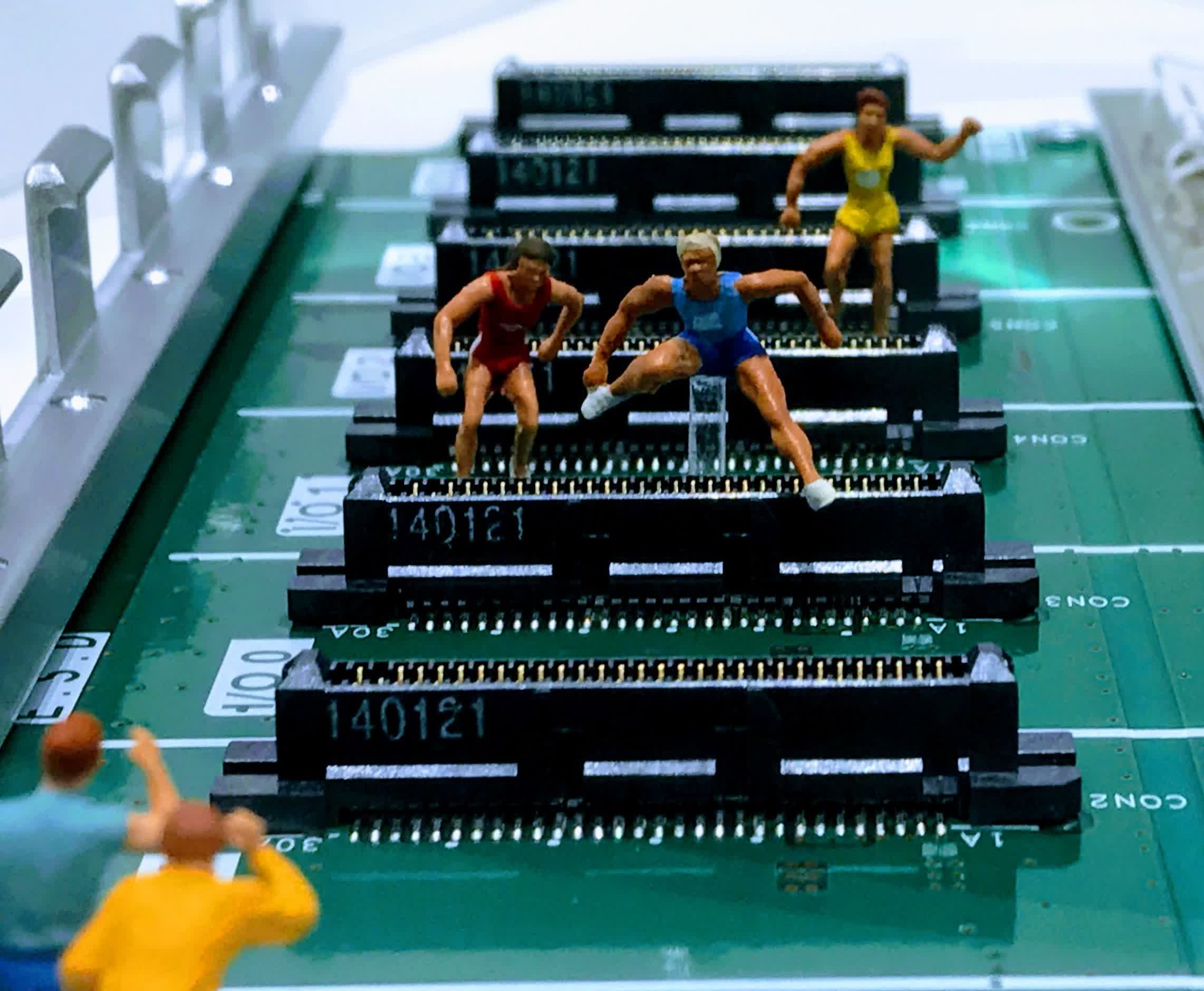What just happened? Intel and AMD both suffered casualties this week. Team Red lost its schedule at the last minute and had to postpone this month's launch of the 7040HS series to April. Team Blue said goodbye to a niche accelerator that it never got to launch – RIP Thunder Bay.

Announced at CES 2023, AMD's Ryzen 7040HS series (codenamed Phoenix) and the recently released 7045HX series are based on Zen 4 and use TSMC's N4 node, but the similarities stop there. The HS series features a monolithic die that combines an RDNA3 GPU with up to eight cores, and the HX series uses a chiplet design ported from the desktop series with only a basic integrated RDNA2 GPU but up to 16 cores.
Late Friday afternoon, AMD announced that the 7040HS series had been delayed by a month to iron out the bugs. "We now expect our OEM partners to launch the first notebooks powered by Ryzen 7040HS series processors in April," Team Red said in a press release.
Phoenix
| Model | Cores / Threads | Base / Boost Clock | L2 + L3 Cache | GPU CUs | cTDP |
|---|---|---|---|---|---|
| R9 7940HS | 8 / 16 | 4.0 / 5.2 GHz | 24 MB | 12 | 35-54 W |
| R7 7840HS | 8 / 16 | 3.8 / 5.1 GHz | 24 MB | 12 | 35-54 W |
| R5 7640HS | 6 / 12 | 4.3 / 5.0 GHz | 22 MB | 8 | 35-54 W |
There are three models in the HS series: the R9 7940HS and R7 7840HS with eight cores each and the R5 7640HS with six cores. All three have roughly 5 GHz boost clocks and target a 35-54 W power bracket. The CPUs also come equipped with dedicated AI accelerators, and modest integrated RDNA3 GPUs clocked just under 3 GHz, intended to compete with the GTX 1650.
Thunder Bay
Intel started submitting patches to the Linux kernel last week that removed support for the Thunder Bay SoC. Phoronix found the explanation in a dreary patch note: "the product got canceled, and there are no end customers or users."
Thunder Bay was the codename of an SoC that Intel first referenced in its submissions to the Linux kernel in 2021. Rumors said it combined Movidius VPUs (visual processing units) with Xeon cores, but its now-removed drivers revealed that it had Arm A53 cores instead.
Don't worry if the name Movidius has you scratching your head. Intel acquired the company, which makes AI accelerators for IoT applications, in 2016, and phased out its branding. Intel continues to quietly release Movidius VPUs every couple of years since then but mostly integrated the tech into its other lines, including the 13th-gen Core CPUs as the AI unit.
Team Blue probably hasn't abandoned its plans to develop accelerators like Thunder Bay but has paused them as part of its recent efforts to cut costs.
https://www.techspot.com/news/97989-amd-delays-ryzen-7040hs-series-intel-cancels-thunder.html